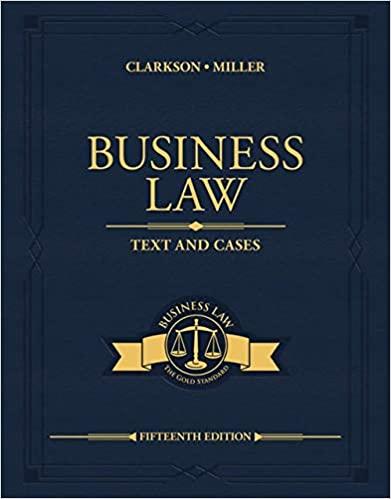The University of Missouri requires employees to disclose inventions developed during their employment so that the university
Question:
The University of Missouri requires employees to disclose inventions developed during their employment so that the university can choose whether to exercise the right to ownership. Galen Suppes was an associate professor at the university, and the university provided the lab he used for his university work. In the lab, he developed the technology to transform glycerol, a byproduct of biodiesel production, into propylene glycol, a compound used to make antifreeze. Without informing the university, Suppes formed Renewable Alternatives (RA) to patent the invention and license the rights. On learning of these actions, the university filed a suit in a Missouri state court against Suppes for breach of the duty of loyalty. The court ordered him to assign his invention to the university. On appeal, Suppes alleged that he had improperly been held liable for the actions of RA. He argued that the university had failed to make a case for piercing the corporate veil on the alter ego theory. A state intermediate appellate court affirmed the lower court’s order. “The University was not required to show that Suppes was the alter ego of RA . . . . The University brought a breach of loyalty claim directly against Suppes for Suppes’s own actions.” [Curators of the University of Missouri v. Suppes, __ S.W.3d __, 2019 WL 121983 (Mo.App. W.D. 2019)] (See Piercing the Corporate Veil.)
(a) Apply the IDDR approach to evaluate the ethics of Suppes’s decision to profit from his research without informing his employer.
(b) What might a university do to encourage innovation by its employees and avoid disputes over the ownership rights to the results? Discuss.
Step by Step Answer:

Business Law Text And Cases
ISBN: 9780357129630
15th Edition
Authors: Kenneth W. Clarkson, Roger LeRoy Miller





